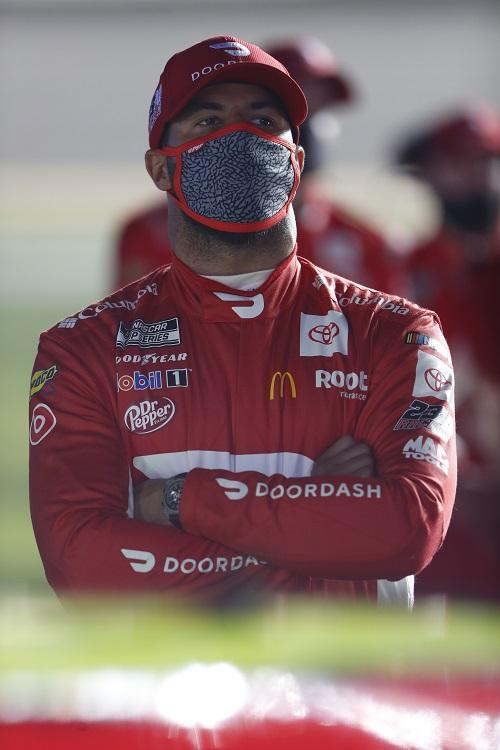

Case in point: In 2015, the industry started seeing cannabis companies signing on as sports sponsors. And yes, there was resistance. Until there wasn’t. Now, multiple NGBs, athletes and professional leagues have lucrative relationships with these vendors.
Also in 2015, Airbnb was announced as the title sponsor of the Brooklyn Half Marathon. It was when the sharing economy – with VRBO and Uber also playing significant roles – was the biggest disruptor in the marketplace. The hospitality industry fretted, and some city governments made attempts to regulate the new market, fearing it would create animosity in neighborhoods. In fact, when the IOC announced a partnership with Airbnb, French hoteliers declared they would stop working with the Paris LOC for the Olympics.
But while 2020 put travel (and transportation) on ice in most destinations – and made the sharing economy the least of anyone’s concerns – it also gave rise to a new market: contact-free food delivery services. And at the epicenter of this phenom are DoorDash and GrubHub, the app-based services that take food from restaurants and drops it off on doorsteps.
As these services (and others like them, including Uber Eats and Seamless) continue to boom, the companies are moving into the sports space for sponsorship opportunities that increase its visibility.
And, say pundits, that’s just brilliant.
“After a summer where millions DID NOT visit the UEFA European Football Championship and the Olympics, and when other sports restarted with empty stadiums, this is clearly the perfect combination for sports in the COVID times,” noted PostFunnel. “You watch sports from your couch, you order food.”
By late summer, DoorDash had already inked deals with the NBA, WNBA, NBA 2K League and the G-League. It also wound up in the NASCAR circuit, sponsoring Bubba Wallace. And in February, DoorDash had announced another partnership, this with Los Angeles-based Angel City FC, which announced DoorDash would be its shirt sponsor when they join the National Women’s Soccer League (NWSL) in 2022.
In 2019, noted Yahoo! Finance, “March (specifically March Madness) marked Uber Eats’ first national TV campaign, and followed DoorDash’s introduction to mainstream TV advertising in January. The food delivery service outspent all of its U.S. rivals last month, spending roughly $9 million. Uber Eats also garnered over 228 million impressions on just 60 broadcast airings, 28 of which were on primetime. Grubhub and DoorDash spent $6 million and $3 million, respectively, on TV advertising over the period.”
As far back as late 2019, GrubHub was named the first sponsor of the ESL Collegiate Fall Invitational, a League of Legends tournament. (It has continued its involvement in esports with, most recently, a three-year partnership with the League Championship Series (LCS), Riot Games' NA LoL Professional League). It is also sponsoring the League of Legends Championship Series (LCS).
"As esports and gaming continue to rise in popularity, our vision is for Grubhub to become synonymous with this sport, make Grubhub and Gaming a new favorite cultural pastime,” said Jessica Burns, Vice President, Brand Marketing and Creative at Grubhub. “Our partnership with the LCS gets us one step closer to that goal."
In terms of philanthropic work, however, DoorDash has the edge. In summer of 2020, DoorDash made waves with the #PlayItForward Challenge, announcing that a donation of up to $100,000 to the National Urban League will be made by DoorDash, $1 for every order placed from a Black-owned restaurant on its platform within a one-month period.
According to Sports Pro Media, Angel City’s sponsorship model dictates that a portion of the money it receives from its partners is reallocated to local causes. As a result, DoorDash is allocating over $1 million to combat food insecurity in Los Angeles and will work with the club and CARE to bring an estimated 250,000 meals to people in need. To celebrate the start of the partnership, DoorDash also launched its ‘Be an Angel’ initiative; February, DoorDash donated $5 for each order placed on its platform to local restaurants owned or led by women.
Postmates, now affiliated with Uber, also activated sponsorship with the NFL for a benefit at the start of the football season in fall of 2020. As the official food delivery service of the NFL, Postmates worked with Kansas City Chiefs quarterback Patrick Mahomes’s foundation, 15 and the Mahomies, to deliver meals to frontline healthcare workers at the Ben Taub Hospital in Houston (the Houston Texans take on the Chiefs in the season’s first game). Meanwhile, Texans quarterback Deshaun Watson used Postmates to deliver meals to frontline workers at Truman Medical Center Hospital Hill in Kansas City.
But it’s not all good. Just as with Uber, Lyft and Airbnb, there are plenty who oppose the services, saying they’re victimizing an already hurting economy.
“Restaurant owners are losing money,” noted Business Insider. “Diners are seeing their costs raised, either by delivery companies that need to pay delivery drivers or by the restaurant owners who raise prices to offset delivery fees. And delivery drivers still make low, unpredictable wages frequently with no benefits. As this conflict comes to a boil, one thing is becoming clear: there are no winners in this fight.”
But, says SGB Media, the delivery service economy is only one part of the puzzle, pointing out, “Throughout the pandemic, consumers purchased products that made staying at home more comfortable and palatable. Spending at retail on these and other categories, like sports equipment, reached $706 billion in 2020, a one percent increase over 2019.”
In other words, until the new normal becomes old school, expect this trend (and others like it) to become the new sponsorship market.

